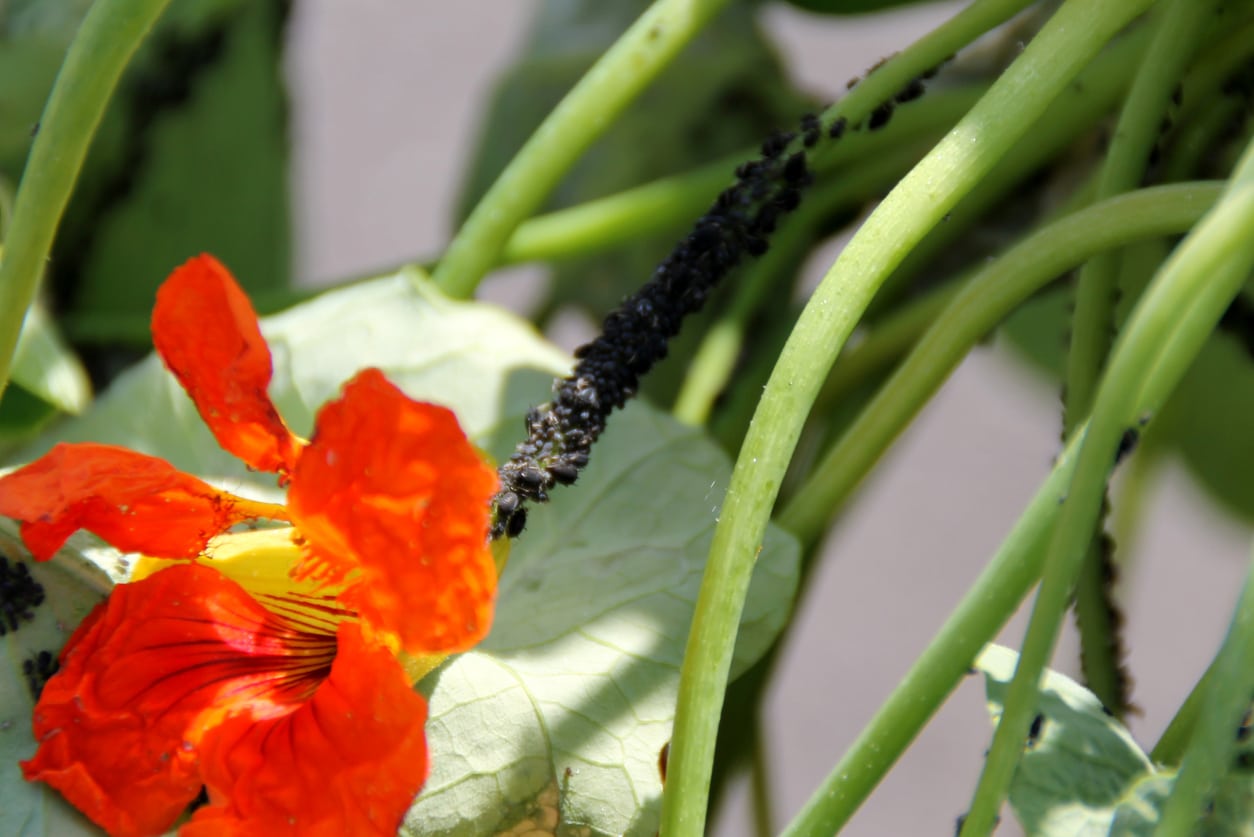Nasturtiums As Pest Control – Planting Nasturtiums For Pest Management


Nasturtiums are colorful plants that brighten the environment with very little human attention. In fact, these cheery annuals thrive with an absolute minimum of care and often seem to prefer neglect. While the familiar plants are appreciated for their beauty and easy growth habits, many gardeners plant nasturtiums as pest control. Can you really use nasturtiums for pest management? If you’re fighting pests in your flower garden, you may want to give it a try! Read on to learn more about nasturtium insect management, along with a few helpful tips on how to control pests with nasturtiums.
Using Nasturtiums as Pest Control
While some gardeners are dubious, many seasoned growers are convinced that nasturtium insect management is a critical aspect of a healthy garden. There are a couple of ways to use nasturtiums as pest control. Planting nasturtiums as a trap crop: Some insects, including the dreaded aphids, love nasturtiums and they prefer them over cabbage and other tender vegetables. The trick to using trap crops is to plant the sacrificial nasturtiums safely away from your garden. You can also use nasturtiums to draw aphids away from your prized roses and other aphid-prone plants. It appears that aphids are especially attracted to yellow nasturtiums. Additionally, nasturtiums may draw harmful cabbage moths, thus saving your tender cabbage, kale, broccoli, and other brassicas. Nasturtiums also attract hoverflies and other beneficial bugs that dine on aphids. If you’re so inclined, you can use insecticidal soap spray or pesticides to kill the aphids on the nasturtiums, thus targeting the bad guys and saving your vegetables from harmful chemicals. Growing nasturtiums as companion plants: When planted with cucumbers and tomatoes, nasturtiums may repel cucumber beetles, whiteflies, aphids, and squash bugs. Planting nasturtiums alongside eggplant or squash plants can also help repel cucumber beetles. As an added benefit, the winding stems add an extra element of beauty.
Tips on Growing Nasturtiums
Plant nasturtiums seeds in early spring. Nasturtiums thrive in full sunlight and moist, well-drained soil. Don’t bother fertilizing nasturtiums, as this is one plant that prefers poor soil. Fertilizer will create lush, green plants at the expense of flowers. Water nasturtiums regularly, but only when the top of the soil is dry. Never over water nasturtiums. Remove wilted flowers to prolong blooming. Nasturtiums grow well in containers, but they may need to be cut back occasionally to keep them from becoming leggy and messy.
Sign up for the Gardening Know How newsletter today and receive a free copy of our e-book "How to Grow Delicious Tomatoes".

A Credentialed Garden Writer, Mary H. Dyer was with Gardening Know How in the very beginning, publishing articles as early as 2007.